Summary | NCCH – WHITRAP Shanghai Capacity Building and Technical Assistance on Management for World Heritage in Mongolia
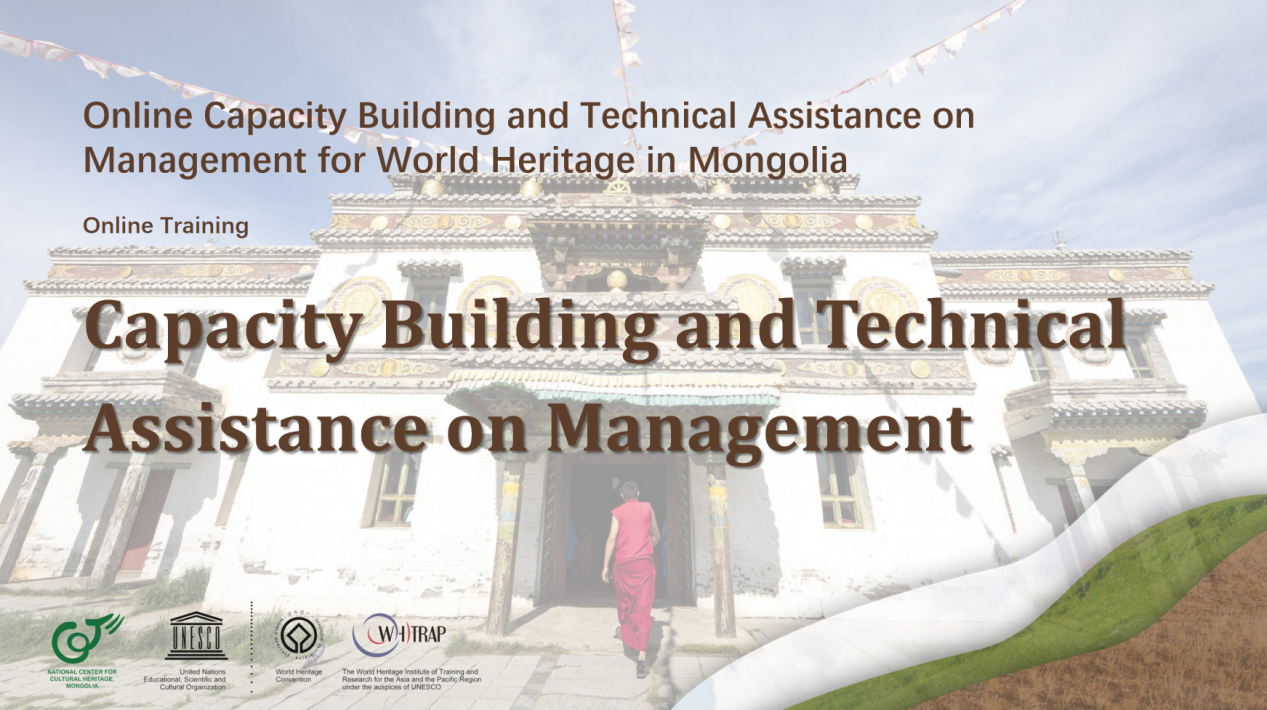
Key Words: Capacity Building Activity,Technical Assistance,Management Plan,World Heritage
Introduction.
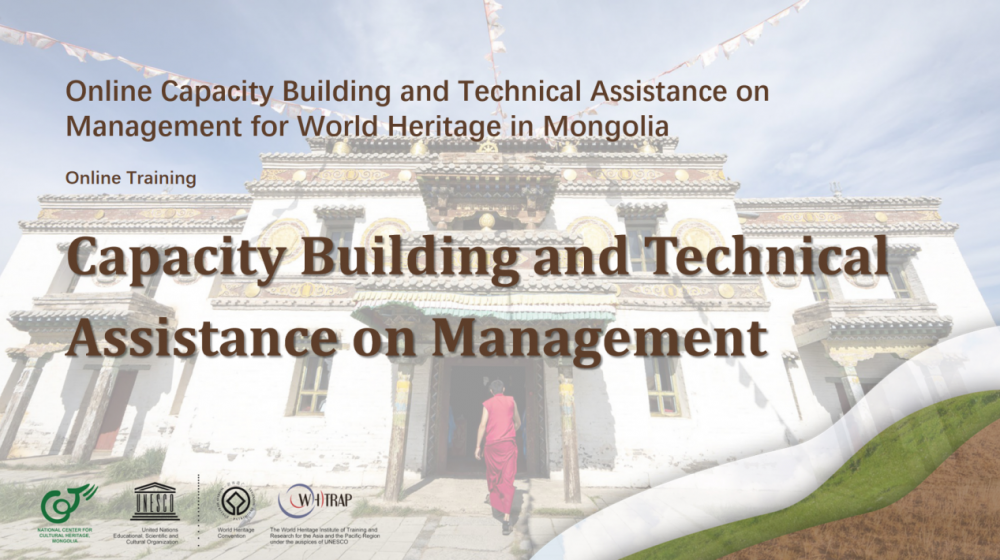
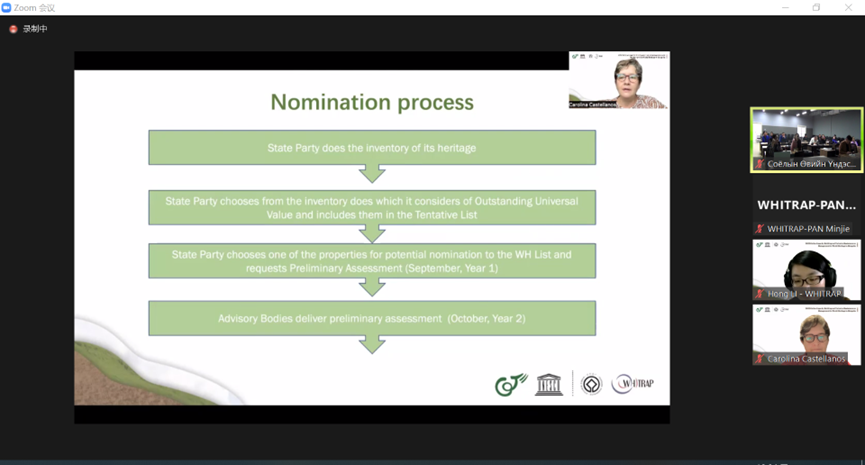
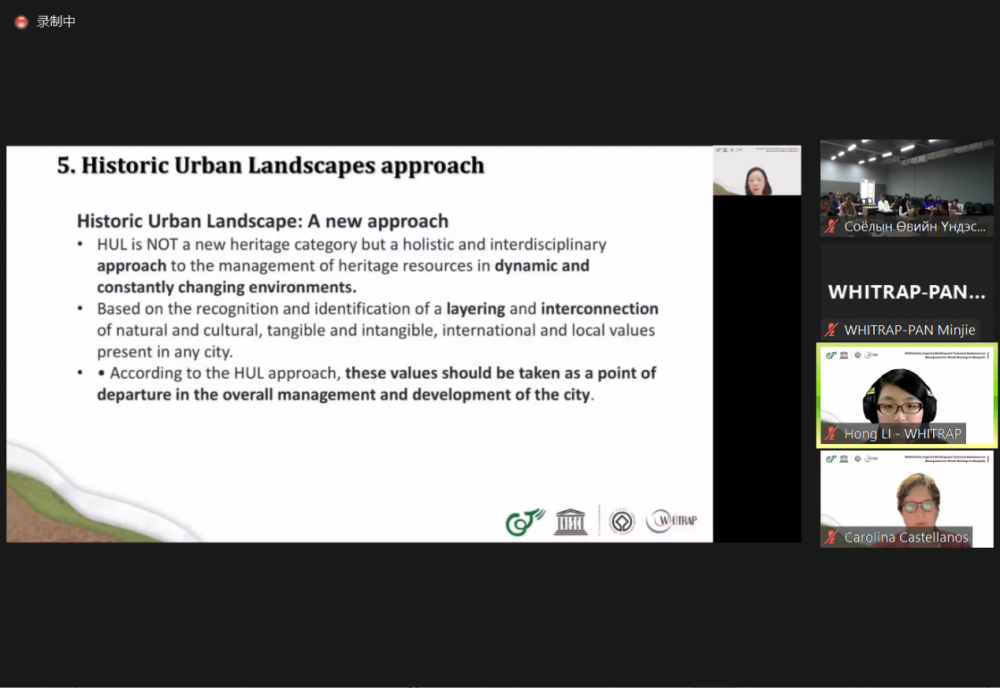
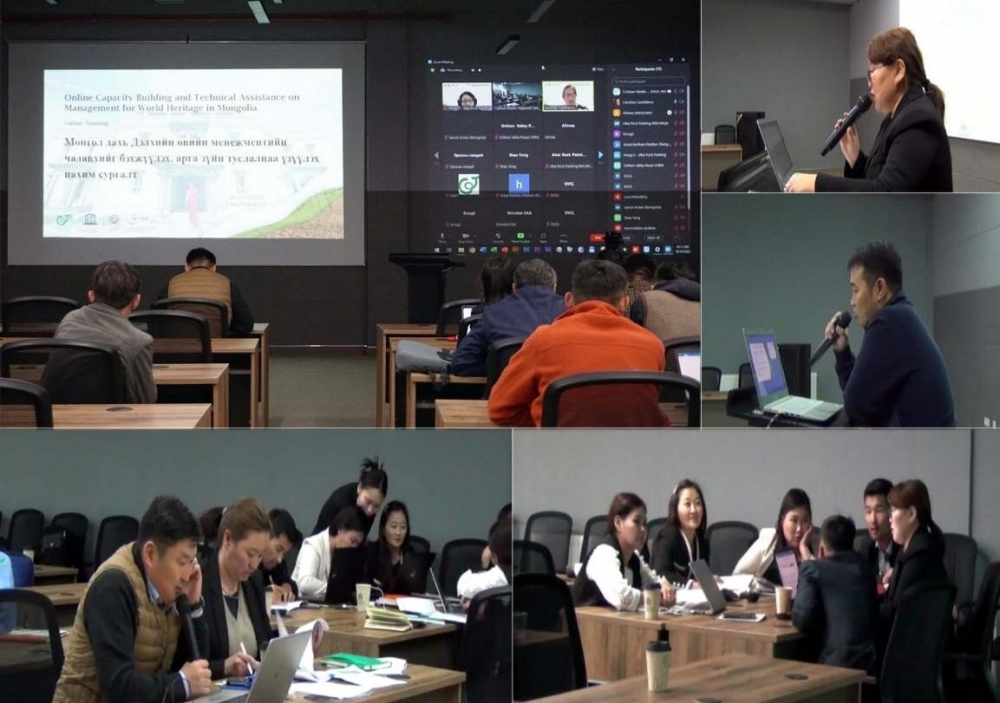
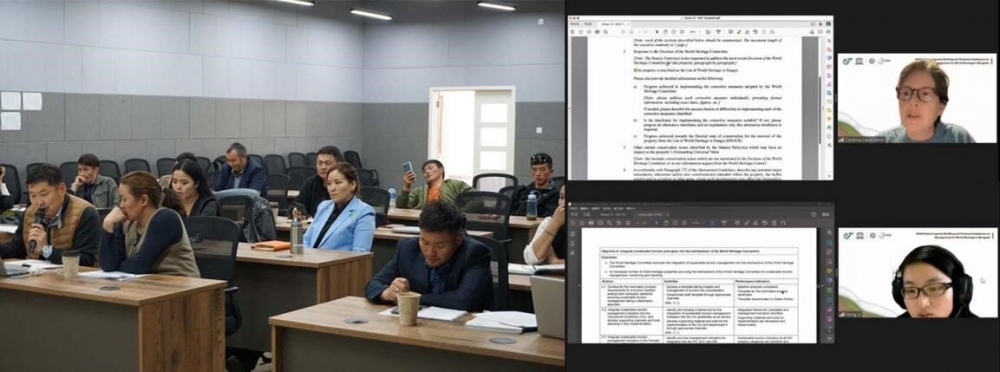
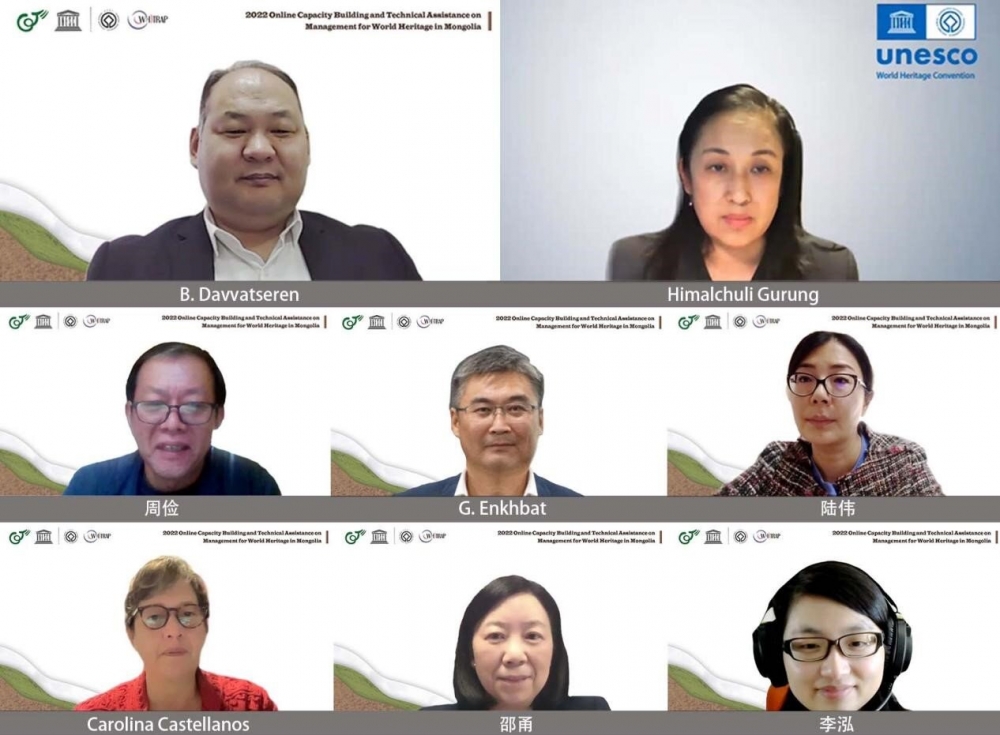
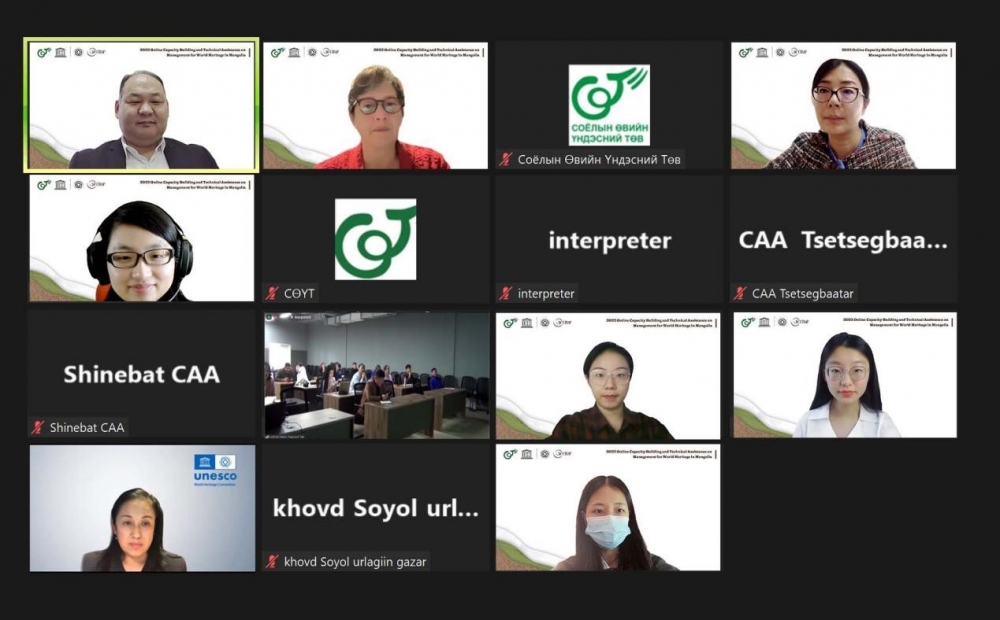
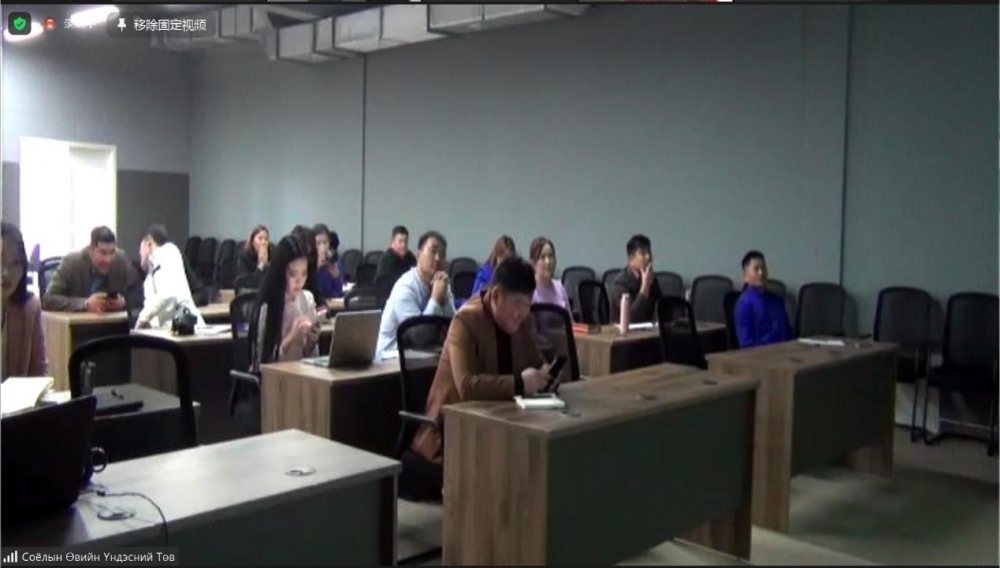
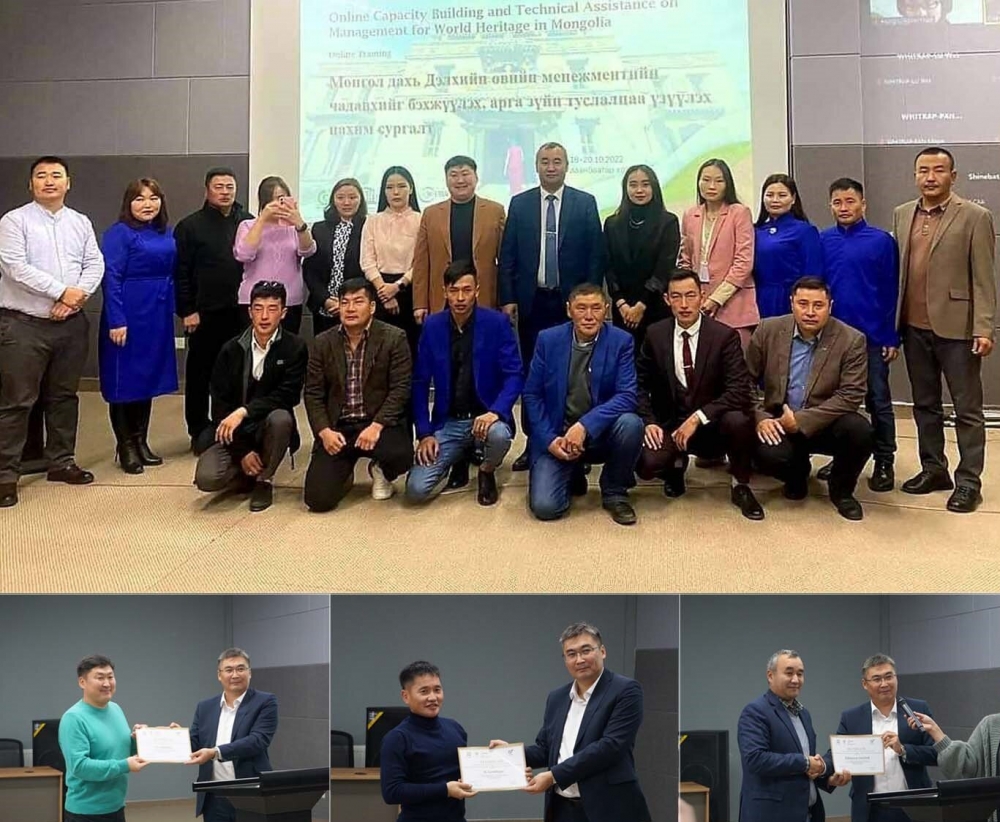
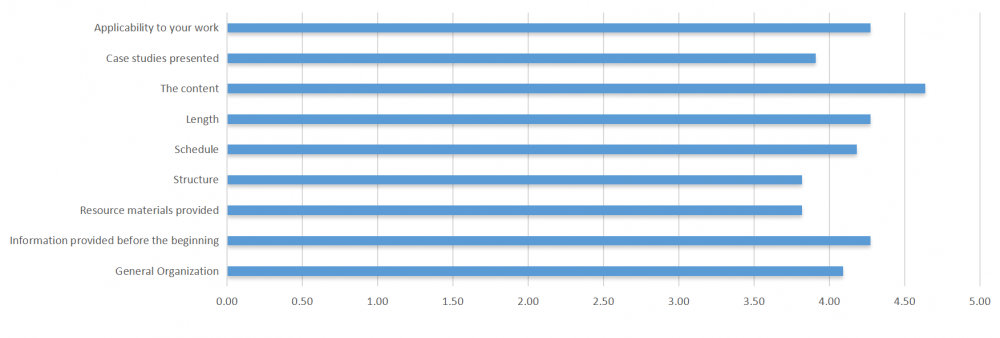
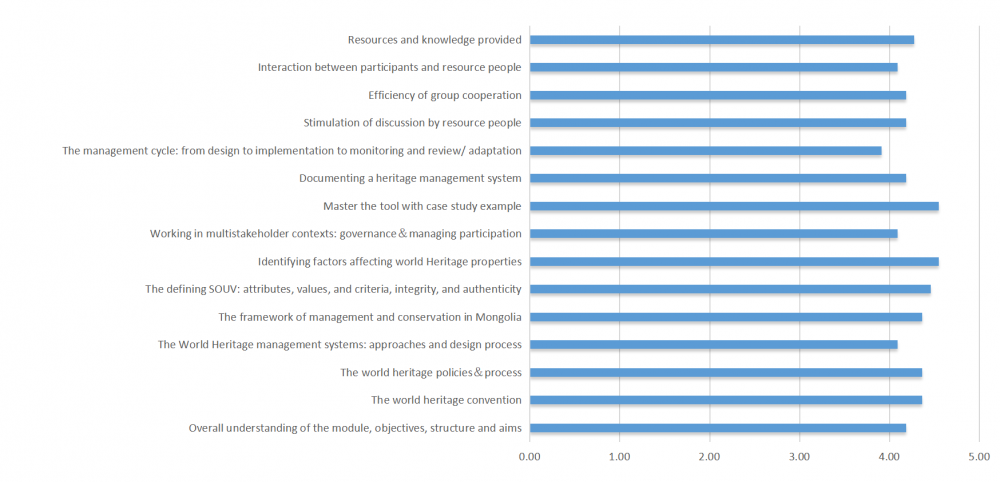

Event cover
Summary
In May 2022, the National Center for Cultural Heritage under the Ministry of Culture of Mongolia (NCCH) and the World Heritage Institute of Training and Research for the Asia and the Pacific Region, Shanghai Center (WHITRAP Shanghai) signed a two-year Memorandum of Understanding (2022-2023) for promoting the implementation of the World Heritage Convention by Asia Pacific countries. From 18 to 21 October 2022, the online activity on Capacity Building and Technical Assistance on Management for World Heritage in Mongolia was jointly organized by both parties, which emphasized the important role of World Heritage in enhancing the resilience and innovation based on humanity and facilitating sustainable development.
Mr. Davaatseren, head of the Cultural Heritage Policy and Implementation Department, Ministry of Culture of Mongolia, Ms. Himalchuli GURUNG, Chief of Unit, Asia and the Pacific Unit, World Heritage Center, Ms. LU Wei, Executive Deputy Director of WHITRAP Shanghai attended the opening ceremony and delivered speeches. Resource persons including Carolina Castellanos, expert of ICOMOS, Shao Yong, Professor of the School of Architecture and Urban Planning of Tongji University, Li Hong, program specialist of WHITRAP Shanghai, and 31 officials from NCCH, three Administration Office of World Cultural Heritage sites in Mongolia participated in this online activity.
This capacity building activity was the first event since the establishment of Mongolia's World Cultural Heritage Management Administration, with main purposes to promote the implementation of capacity building activities in the conservation of cultural heritage in Mongolia, assist Mongolian officials to better understand the World Heritage Convention and equip the participants with skills and knowledge in design and implementation of management plans/ systems. It focused on the integration between conservation, management, and sustainable development, as well as the articulation of heritage management systems with the existing governance, and legal and administrative frameworks and planning at the national and local level in relation to the statutory requirements set forth by the World Heritage Convention.
This activity was designed with a hybrid model that included lectures and workshops online and offline to discuss questions and issues related to conservation and management of World Heritage properties in Mongolia. This set of activities aimed to:
• Enhance understanding of the World Heritage Convention, key concepts, and statutory processes.
• Promote awareness of and better understanding of conservation and management of World Heritage Properties.
• Understand and develop management approaches and options for WH properties in Mongolia.
• Review current state of World Cultural Heritage properties in Mongolia and existing management challenges and identify potential responses to concerns raised by the World Heritage Committee in relation to the management of World Cultural Heritage in Mongolia.
• Contribute to professional capacity building to support the development and operation of management systems at WH properties.
• Provide skills and knowledge to heritage practitioners to successfully design and implement management plans/ systems.
• Enhance understanding of the World Heritage Convention, key concepts, and statutory processes.
• Promote awareness of and better understanding of conservation and management of World Heritage Properties.
• Understand and develop management approaches and options for WH properties in Mongolia.
• Review current state of World Cultural Heritage properties in Mongolia and existing management challenges and identify potential responses to concerns raised by the World Heritage Committee in relation to the management of World Cultural Heritage in Mongolia.
• Contribute to professional capacity building to support the development and operation of management systems at WH properties.
• Provide skills and knowledge to heritage practitioners to successfully design and implement management plans/ systems.
The lectures covered the theoretical concept and legal procedures of the World Heritage Convention and different cases illustrating methodological approaches in diverse World Heritage contexts through 10 units. For group exercises, participants worked in three groups that centered their analysis on the following three World Heritage properties in Mongolia: Orkhon Valley Cultural Landscape, Petroglyphic Complexes of the Mongolian Altai, and Great Burkhan Khaldun Mountain and its surrounding sacred landscape, to clarify the technical routes of heritage management and thus helping the participants to better implement the World Heritage Convention at the local level.

Ms. Carolina Castellanos presenting

Ms. Shao Yong presenting

Group discussion and report
As a culminating activity, an executive workshop was held on 21 October 2022 focusing on the Resolution of the 44th World Heritage Committee on the Great Burkhan Khaldun Mountain and its surrounding sacred landscape, and aimed to provide detailed technical guidance on management planning, monitoring system, visitor management, heritage impact assessment, etc.

Technical Assistance on the Great Burkhan Khaldun Mountain and its surrounding sacred landscape
Mr. Enkhat, the National Heritage Center of the Ministry of Culture of Mongolia, stressed that there were still arduous tasks ahead in the pursuit of improvement in Mongolian heritage protection. This cultural exchange event concerning World Heritage management, value mining, documentation, and monitoring was an important event for all directors and staff at the national level and the local heritage site level. NCCH hoped to keep a long-term partnership with WHITRAP Shanghai, and sought more cooperation with China and other countries through this partnership so as to jointly improve heritage protection and management capabilities.
This activity has made a promising start for the following co-organized events between 2022 and 2023, which yields substantial results that meet the needs of Mongolia's World Heritage conservation.



Group photos

Offline group photo and Mongolian participants receiving certificates
EVALUATION
In order to improve the quality of its capacity-building activities, WHITRAP and NCCH get feedback from the participants. The evaluation notably concerns the following aspects: general organization of the course, content, technical implementation, recommendations and follow-up. Each aspect is assessed through grading (the highest score is 5) and comments. Below is summarized the outcome of the evaluation form of the activity of "Online Capacity Building and Technical Assistance on Management for World Heritage in Mongolia" in 2022.
General Organization: Participants were satisfied with the overall organization of the activity, and the content of the activity was the most satisfactory. They spoke highly of the pertinence and practicability of the activity, and were also satisfied with the information provided by the resource person in advance. It is worth mentioning that the practice of group discussion was considered to be the most valuable part.
In order to improve the quality of its capacity-building activities, WHITRAP and NCCH get feedback from the participants. The evaluation notably concerns the following aspects: general organization of the course, content, technical implementation, recommendations and follow-up. Each aspect is assessed through grading (the highest score is 5) and comments. Below is summarized the outcome of the evaluation form of the activity of "Online Capacity Building and Technical Assistance on Management for World Heritage in Mongolia" in 2022.
General Organization: Participants were satisfied with the overall organization of the activity, and the content of the activity was the most satisfactory. They spoke highly of the pertinence and practicability of the activity, and were also satisfied with the information provided by the resource person in advance. It is worth mentioning that the practice of group discussion was considered to be the most valuable part.

Evaluation of the General Organization
Source: WHITRAP Shanghai
Source: WHITRAP Shanghai

Evaluation of the content
Source: WHITRAP Shanghai
Source: WHITRAP Shanghai
Content: Through the activity, the participants understood the management system and management planning. It is worth noting that the participants were satisfied with the content of the module, cases and Q&A sessions.
Technical implementation: Due to the pandemic, we had adopted a hybrid mode of the activity. The resource person recorded and provided the lectures in advance, and the on-site simultaneous interpretation is provided during offline meeting room. Techniques on simultaneous interpretation will be improved in later cooperation.
Recommendation: Some participants expressed that it would be better if face-to-face seminars could be held. In addition, the need for workshop manuals and handouts is mentioned by the participants in the evaluation form. The professionalism of translation should be improved. They were all looking forward to applying what they have learned in the course to their work and contributing to their future practice.
Follow-up: almost all participants would like to share the course materials to their supervisors and colleagues. Participants express the great interest in topics such as tourism related issues and cultural heritage impact assessment.
Technical implementation: Due to the pandemic, we had adopted a hybrid mode of the activity. The resource person recorded and provided the lectures in advance, and the on-site simultaneous interpretation is provided during offline meeting room. Techniques on simultaneous interpretation will be improved in later cooperation.
Recommendation: Some participants expressed that it would be better if face-to-face seminars could be held. In addition, the need for workshop manuals and handouts is mentioned by the participants in the evaluation form. The professionalism of translation should be improved. They were all looking forward to applying what they have learned in the course to their work and contributing to their future practice.
Follow-up: almost all participants would like to share the course materials to their supervisors and colleagues. Participants express the great interest in topics such as tourism related issues and cultural heritage impact assessment.
Contributed by LI Hong, PAN Minjie, ZHANG Hanqi, WHITRAP Shanghai
